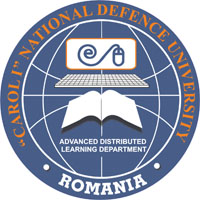INQUIRY-BASED APPROACH TO TEACHING PHOTOVOLTAICS
INQUIRY-BASED APPROACH TO TEACHING PHOTOVOLTAICS
Author(s): Stefan Antohe, Nuri KORGANCI, Adrian Dafinei, Cristina MIRONSubject(s): Education
Published by: Carol I National Defence University Publishing House
Keywords: photovoltaics; solar tracker; inquiry-based learning
Summary/Abstract: Solar energy is indispensable since solar power is not only widespread but also it has the potential to be used more widely in daily life technology. To supply the usage of solar energy resources in an effective way, schools have to encourage students’ conscious learning styles which can be achieved via the use of inquiry-based approach. This approach predominantly promotes deep learning and increases students’ interest in science rather than simple memorization. Especially it is an approach that places students’ questions, ideas, perspectives and observations at the center of the learning experience. This paper reports on an experimental study to explore the effect of inquiry learning method on understanding photovoltaic concepts. We have built solar tracker to produce exactly the sun’s path on its orbit and to estimate the power produced by a halogen light source on solar panels with different coordinates. The solar tracker can be controlled by a computer using an usb port. It is automated system built using the microcontroller called Arduino. Students measured the IV characteristics of amorphous and polycrystalline solar cells from the surface of the model building. The solar tracker facilitated learning of the solar cell concepts with great opportunity in an interactive style. It is an easy and low-cost solution that helps students get a better understanding of the subject. After the inquiry based learning approach to the lessons which solar tracker was used perception survey is distributed to students. According to perception survey it can be stated that inquiry-based learning increased students’ attention, concentration span on learning.
Journal: Conference proceedings of »eLearning and Software for Education« (eLSE)
- Issue Year: 11/2015
- Issue No: 03
- Page Range: 491-496
- Page Count: 6

